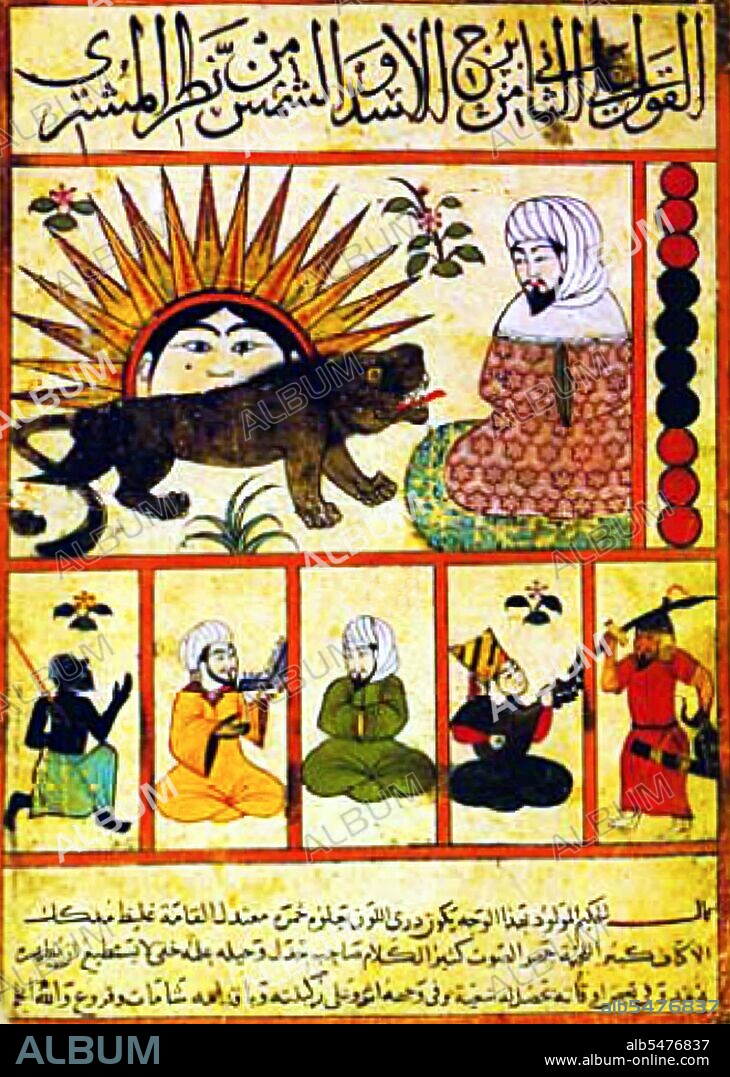alb5476837
Iran-Persia-Afghanistan: Sun and lion symbols from an astrological treatise by Abu Ma'shar Ibn Balkhi,850 CE

|
Añadir a otro lightbox |
|
Añadir a otro lightbox |



¿Ya tienes cuenta? Iniciar sesión
¿No tienes cuenta? Regístrate
Compra esta imagen.
Selecciona el uso:

Título:
Iran-Persia-Afghanistan: Sun and lion symbols from an astrological treatise by Abu Ma'shar Ibn Balkhi,850 CE
Descripción:
Traducción automática: Abu Ma'shar, Ja'far ibn Mu?ammad al-Balkhi (también conocido como al-Falaki o Ibn Balkhi, latinizado como Albumasar, Albusar o Albuxar) (10 de agosto de 787 en Balkh, Khurasan - 9 de marzo de 886 en Wasi? , Irak), fue un astrólogo, astrónomo y filósofo islámico persa, considerado el más grande astrólogo de la corte abasí en Bagdad. No fue un gran innovador y sus obras son libros prácticos para la formación de astrólogos; ni siquiera como astrólogo era intelectualmente riguroso. Sin embargo, escribió una serie de manuales prácticos sobre astrología que influyeron profundamente en la historia intelectual musulmana y, a través de traducciones, en la de Europa occidental y Bizancio.
Abu Ma'shar, Ja'far ibn Mu?ammad al-Balkhi (also known as al-Falaki or Ibn Balkhi, Latinized as Albumasar, Albusar, or Albuxar) (10 August 787 in Balkh, Khurasan – 9 March 886 in Wasi?, Iraq), was a Persian astrologer, astronomer, and Islamic philosopher, thought to be the greatest astrologer of the Abbasid court in Baghdad. He was not a major innovator, and his works are practical books for training of astrologers; even as an astrologer he was not intellectually rigorous. Nevertheless, he wrote a number of practical manuals on astrology that profoundly influenced Muslim intellectual history and, through translations, that of western Europe and Byzantium.
Crédito:
Album / Pictures From History/Universal Images Group
Autorizaciones:
Tamaño imagen:
3500 x 4907 px | 49.1 MB
Tamaño impresión:
29.6 x 41.5 cm | 11.7 x 16.4 in (300 dpi)


 Pinterest
Pinterest Twitter
Twitter Facebook
Facebook Copiar enlace
Copiar enlace Email
Email
